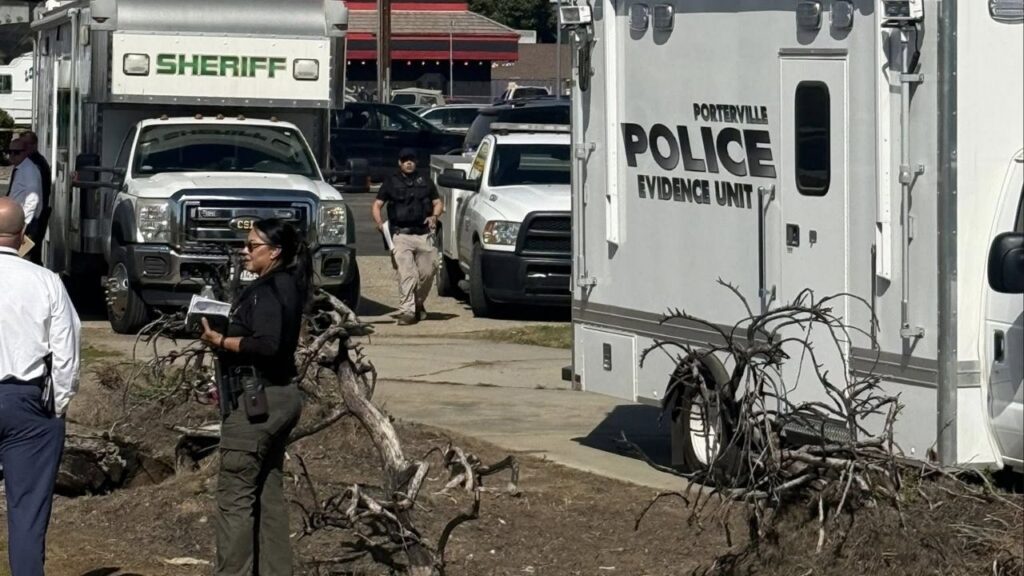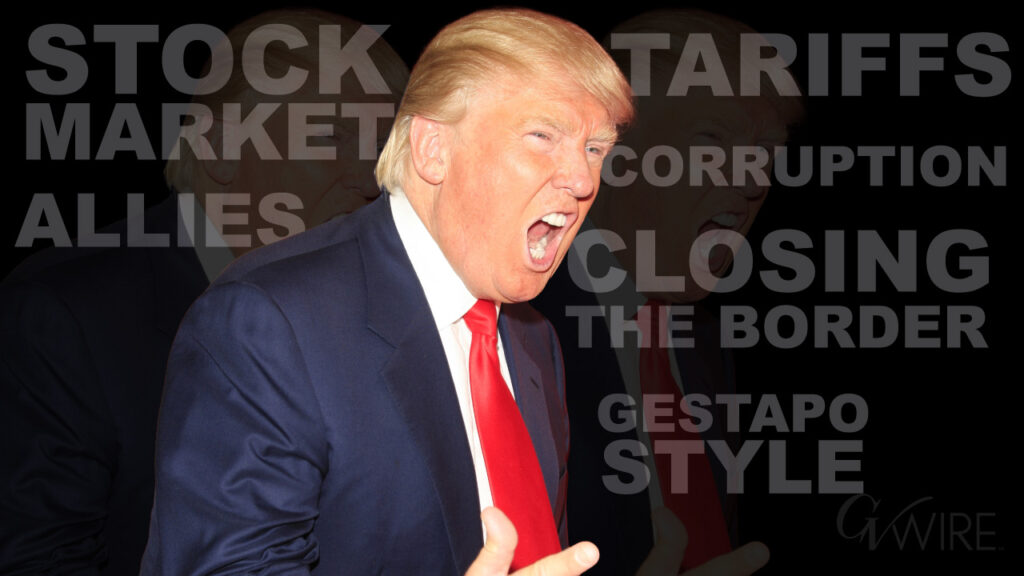Share
WASHINGTON — President Donald Trump on Tuesday turned up the pressure on governors to quell the violence set off by the death of George Floyd, demanding New York call up the National Guard to stop the “lowlifes and losers.”
As more demonstrations began taking shape around the country during the afternoon, and cities girded for another round of scattered violence after dark, the president amplified his hard-line calls of a day earlier, in which he threatened to send in the military to restore order if governors didn’t do it.
“NYC, CALL UP THE NATIONAL GUARD,” he tweeted. “The lowlifes and losers are ripping you apart. Act fast! Don’t make the same horrible and deadly mistake you made with the Nursing Homes!!!”
NYC, CALL UP THE NATIONAL GUARD. The lowlifes and losers are ripping you apart. Act fast! Don’t make the same horrible and deadly mistake you made with the Nursing Homes!!!
— Donald J. Trump (@realDonaldTrump) June 2, 2020
Protests were held in such places as Orlando, Florida, where more than 1,000 people gathered in the afternoon to decry the killings of black people.
“This has to change,” said 39-year-old Aisxia Batiste, an out-of-work massage therapist. “Something has to give. We’re done. This is the beginning of the end of something. It has to be.”
In New York, where crowds of people on Monday night smashed store windows and police made nearly 700 arrests, Mayor Bill de Blasio extended an 8 p.m. curfew all week.
“We’re going to have a tough few days,” he warned, but added: “We’re going to beat it back.” He pleaded with community leaders to step forward and “create peace.”
More than 20,000 National Guard members have been called up in 29 states to deal with the violence. New York is not among them. De Blasio has said he does not want the Guard, and Democratic Gov. Andrew Cuomo has said he will not send it into the city against the mayor’s wishes.
Monday marked the seventh straight night of unrest around the country.
Some Protesters Frame the Burgeoning Movement as Necessity After String of Killings by Police
In Atlanta, police fired tear gas at demonstrators. In Nashville, more than 60 National Guard members put down their riot shields at the request of peaceful protesters. At a demonstration in Buffalo, New York, an SUV plowed into a group of officers, injuring three.
An officer was shot and gravely wounded as police tried to disperse a crowd outside a Las Vegas hotel and casino. Four officers were shot in St. Louis; they were expected to recover.
Philadelphia officials described a chaotic night in which one person was killed trying to use explosives to open an ATM, a gun shop owner fatally shot a would-be thief, and a 19-year-old died of injuries during looting.
About a dozen other deaths have been reported around the country over the past week. And more than 5,600 people nationwide have been arrested for such offenses as stealing, blocking highways and breaking curfew, according to a count by The Associated Press.
“We have been sitting on a powder keg for some time and it has burst,” Philadelphia Police Commissioner Danielle Outlaw said.
Some protesters framed the burgeoning movement as a necessity after a string of killings by police.
“I fear for my safety every time I get in the car to go for a drive. I fear of getting pulled over. I fear for all 10 of my brothers’ and sisters’ lives, for my parents’ lives!” 19-year-old Amari Burroughs of Parkland, Florida, said Tuesday as she prepared for another protest.
“My goal is to use my voice and my leadership to make this world safer so that one day I can bring children here and won’t have to fear for their safety.”
Outside the Minnesota Capitol in St. Paul, where a youth protest was held Tuesday, 18-year-old Joseph Tawah agreed.
“It’s really hard not to feel afraid,” he said.

Amid the Protests, Cities Struggled to Keep Police in Line and Avoid Instances of Excessive Force
Meanwhile, governors and mayors, Republicans and Democrats alike, rejected Trump’s threat to send in the military, with some saying troops would be unnecessary and others questioning whether the government has such authority and warning that such a step would be dangerous.
“Denver is not Little Rock in 1957, and Donald Trump is not President Eisenhower. This is a time for healing, for bringing people together, and the best way to protect civil rights is to move away from escalating violence,” Colorado Gov. Jared Polis and Denver Mayor Michael Hancock, both Democrats, said in a statement, referring to Eisenhower’s use of troops to enforce school desegregation in the South.
A senior White House official, speaking on condition of anonymity, said that the president is not rushing to send in the military and that his goal was to pressure governors to deploy more National Guard members.
Such use of the military would mark a stunning federal intervention rarely seen in modern American history.
Federal law allows presidents to dispatch the military into states to suppress an insurrection or if a state is defying federal law, legal experts said. But some state officials asserted that the president does not have a unilateral right to send in troops against the will of local governments.
Minnesota, meanwhile, opened an investigation into whether the Minneapolis Police Department has a pattern of discrimination against minorities. Floyd died May 25 after a white Minneapolis officer, Derek Chauvin, pressed his knee on the handcuffed black man’s neck for several minutes.
Chauvin has been charged with murder. Minnesota Attorney General Keith Ellison said prosecutors are working as fast as they can to determine if the three other officers at the scene should be charged too. All four have been fired.
Amid the protests, cities struggled to keep police in line and avoid instances of excessive force.
The police chief in Louisville, Kentucky, was fired after a restaurant owner was killed by police and National Guard members enforcing a curfew. In Richmond, the police chief said officers who used tear gas on a group of peaceful protesters would be disciplined. In Atlanta, six officers were charged after a video showed authorities dragging two young people from a car during protests.
RELATED TOPICS:
Categories

Fresno Police Seek Help Identifying Suspects in Southeast Shooting

Trumps Get OK for Irish Golf Ballroom but Must Help Protect Snails

















